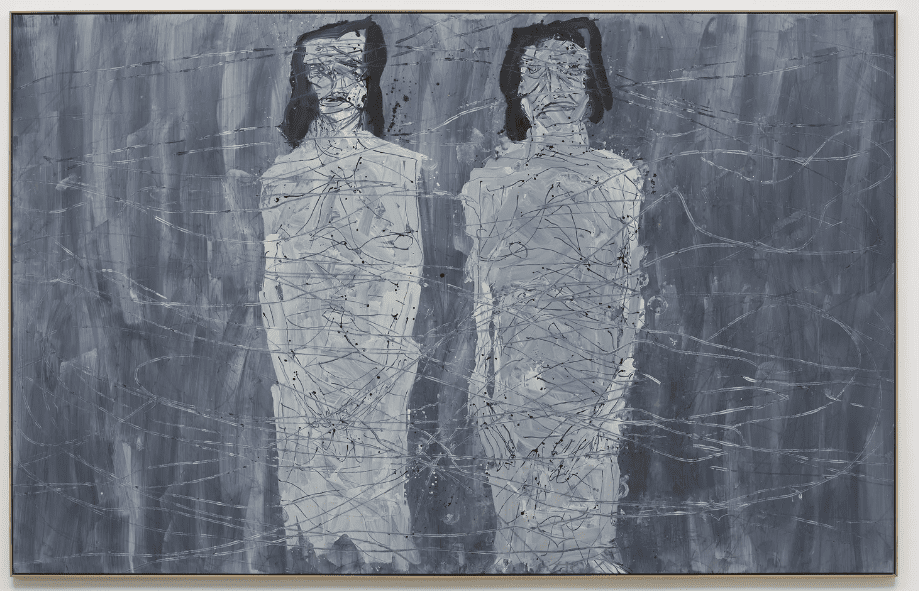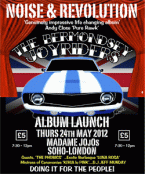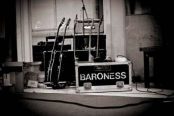'a light hand on production, a closeness and immediacy, and a simplicity that is utterly seductive', George Harrison's Early Takes reviewed.
An accompaniment to the DVD release of Martin Scorsese's Living in the Material World documentary, the Early Takes, Volume One album represents the early 70s, post-Beatles demos that George Harrison recorded, most of which ended up on All Things Must Pass in more polished form.
Writing throughout his time with The Beatles, Harrison's difficulty persuading the other bandmembers to record his songs resulted in a solid body of unreleased work to draw from after the band split in 1970. Although Harrison recorded and released two solo albums whilst with The Beatles, All Things Must Pass is regarded as his first 'real' solo album, given that Wonderwall was a film soundtrack, and Electronic Sound was an early synthesiser concept album.
the intimacy of casual home-studio sessions
What distinguishes these recordings, and what elevates them above the customary completist-exploiting studio sweepings that often make up the contents of similar releases, is that despite its meagre playing time at only just over half an hour, Early Takes is packed not only with the intimacy of casual home-studio sessions amongst friends, but also with some musical gems which stand alone as finished works in their own right. In the case of 'My Sweet Lord', arguably better than the polished and released version.
We hear Harrison introducing the songs, counting them in, suggesting revisions, asking for input from his assembled bandmembers. And however relaxed the scene, the musicianship is exemplary. Harrison displays a rare ability, shared most notably by Clapton (who played on All Things Must Pass), to create a groove, a swing, with an acoustic guitar. It's one of those things that is easier to notice when its absent than present, but it is the product of a musician who is comfortable with his guitar far beyond the comparatively simple demands of technical merit. Rather, it is a feel for the guitar: balance, weighting, time, and an emotional connection to the instrument which is somehow audible.
a very personal faith
It's most striking in 'My Sweet Lord'. The pared-down runthrough of the track that we hear on Early Takes is already imbued with intimacy by the informal context of the session, but the juxtaposition of Harrison's acoustic guitar dexterity and the nature of the song's lyrics bring a sincerity to the expression of a very personal faith. A sincerity which is missing on the more familiar finished work. That, with the intrusion of an unflattering lead guitar line and additional backing vocals, creates more distance between song and singer, a distance which is happily absent in the version on Early Takes.
Beatles fans have something of a troubled relationship with the band's occasional producer Phil Spector. The Beatles themselves shared some of the same misgivings. Paul McCartney's wranglings with the producer over 'Let it Be' are perhaps the best-known, but it's fair to say that Spector's lavish dramatics, whilst undoubtedly enhancing certain compositions, also overwhelmed the subtleties of others.
The songs on Early Takes mostly wound up produced by Spector. Here they appear in their demo form, previous to being worked on with the producer. Harrison's composition and arrangement skills were such that almost nothing of the songs' structures are changed in the final versions – they are instead embellished and added to. As previously mentioned, 'My Sweet Lord' gains some electric guitar and vox, whilst 'Awaiting on you all' gains multiple guitars and a horde of voices on the official version.
Despite all that, a George Harrison demo session from the early seventies should not be thought of as something thrown together with an acoustic guitar in a bedroom. The tracks feature drums, bass, electric guitar, acoustic guitar, and in the case of 'Behind That Locked Door', the pedal steel guitar which features on the final cut. Only 'The Light that Has Lighted the World', which appeared on the later Living in the Material World album, do we get a simple acoustic and vocals rendition, and even that has had a touch of post-production multi-tracking on the outro vocals.
a light hand on production, a closeness and immediacy
Nevertheless, this short collection of takes, and we can presume that there will be more (the album is sub-titled 'Volume One', and features a publicity image from Scorsese's film taken earlier era than when the recordings took place; suggesting an ever-hairier series of images gracing the covers of albums to come) displays a light hand on production, a closeness and immediacy, and a simplicity that is utterly seductive.
With the ownership of EMI (and with it, the Abbey Road archives from which these recordings presumably came) in transition, it can be expected that the more commercially viable assets of the only British major label will see more action in the coming months and years than in the last decades, and archival recordings will constitute much of EMI's release schedule under its new owners. A good deal of that will be of a much lower calibre than Harrison's Early Takes Volume One.
Out on Universal Music, April 30

An observer first and foremost, Sean Keenan takes what he sees and forges words from the pictures. Media, critique, exuberant analysis and occasional remorse.















